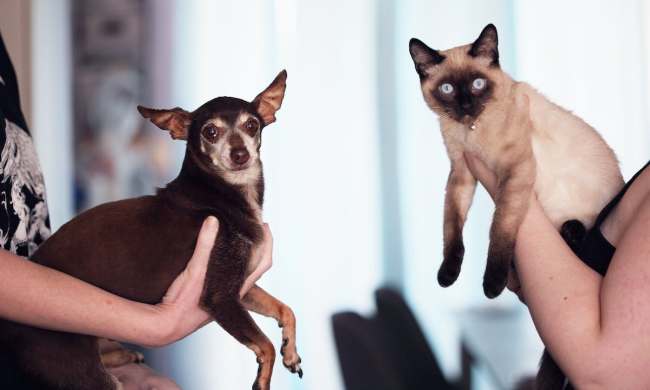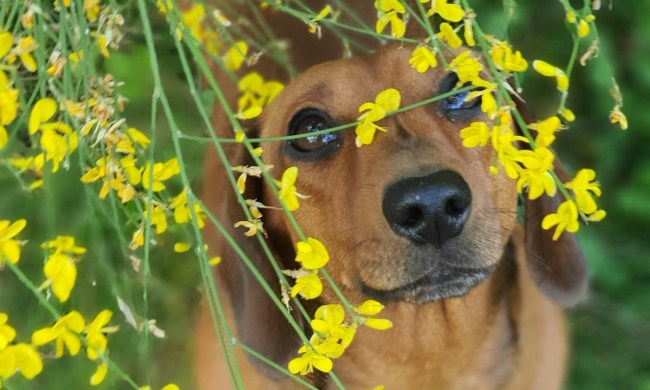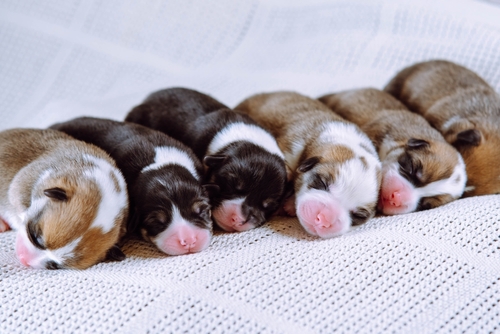
Generally, puppies require abundant sleep — some will snooze up to 20 hours per day. Every pup is different, though and as they get older, the number of sleep hours decreases. By about 16 weeks of age, most dog breeds will be able to sleep through the night.
Sleep is an essential element of human and canine development. As anyone who has had a new puppy can tell you, it can be tough at first to get them into a good sleeping routine. Still, you’ll want to make sure you and your new dog are rested and fit for all that life has to offer you. Here is everything you need to know about when your new puppy should be sleeping through the night and the answer to the question, “Do puppies sleep a lot?”
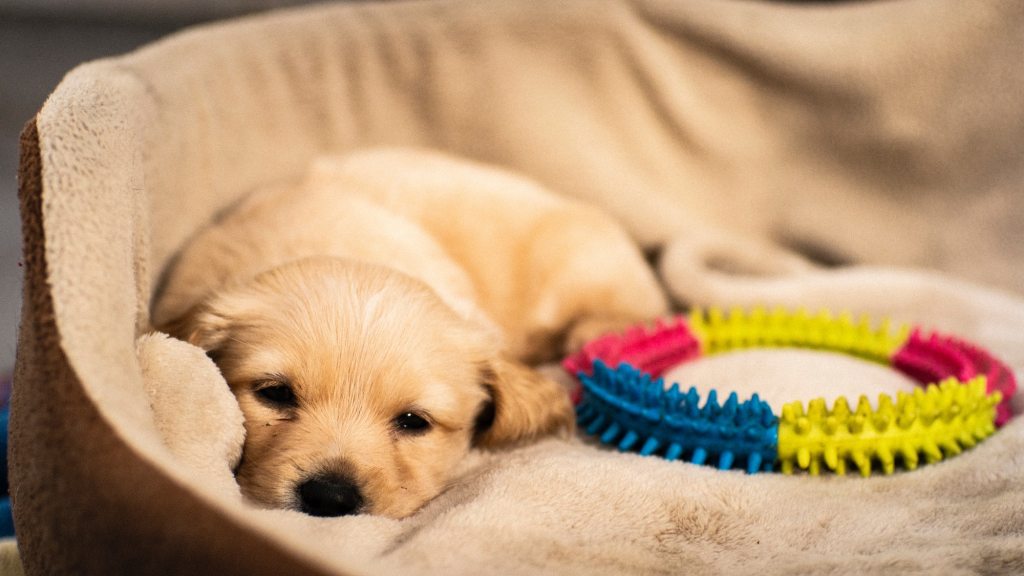
Why is my dog so sleepy? The answer isn’t necessarily concerning
Sleep is extremely important for dogs and humans alike. Without the proper amount of rest, it can be challenging to perform our very best in whatever we do. Your pup is learning and growing every second of the day, so their slumber is even more important. Their sleep provides the chance to recharge their batteries and be ready to do it all again tomorrow.
Rest is also important for retaining knowledge and forming memories. If you are proactive about teaching your dog after they are fully rested, they will learn faster, and you will develop a better bond. It’s not easy to plan every moment around your dog — and you won’t be able to — but time away from you is important for healthy development, too. It can be challenging to learn how to live in a balanced way as a pet owner — we promise it becomes easier the more you practice and continue to educate yourself on what works with your unique pet.
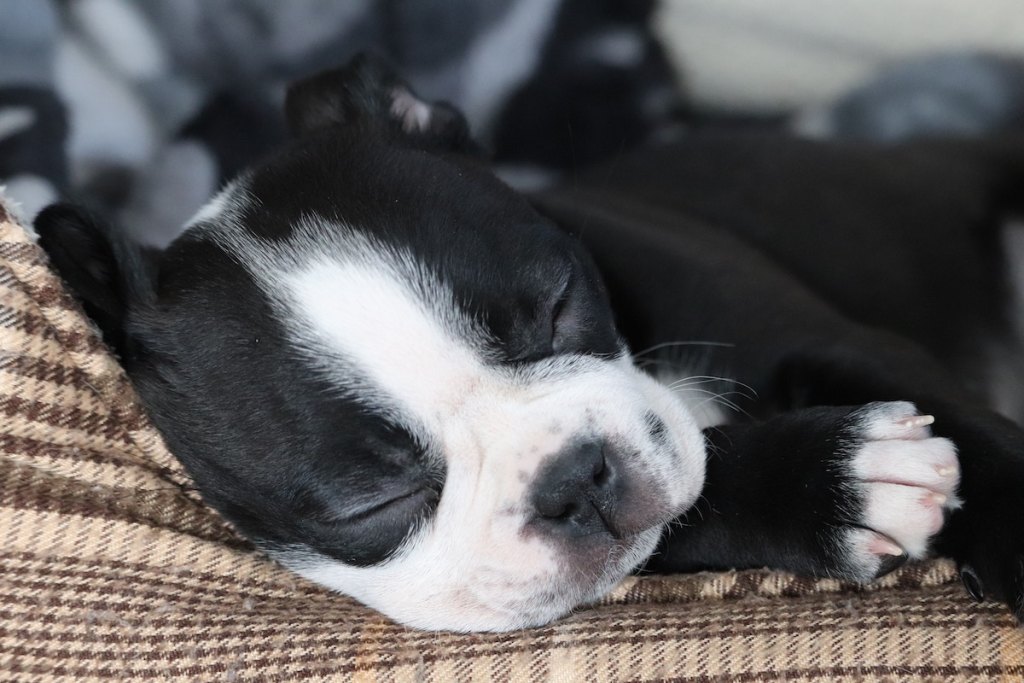
Is my puppy sleeping too much? The answer: Probably not
If the fact that your new little family member is snoozing the day away has you worried that something might be wrong, don’t despair. It’s perfectly normal for your pup to sleep all day. Their little bodies are growing fast, and need their rest, especially given how energetic they can be when they’re awake. Think of a puppy as a human baby who is growing and developing at a rapid rate. Sleep is essential to their well-being.
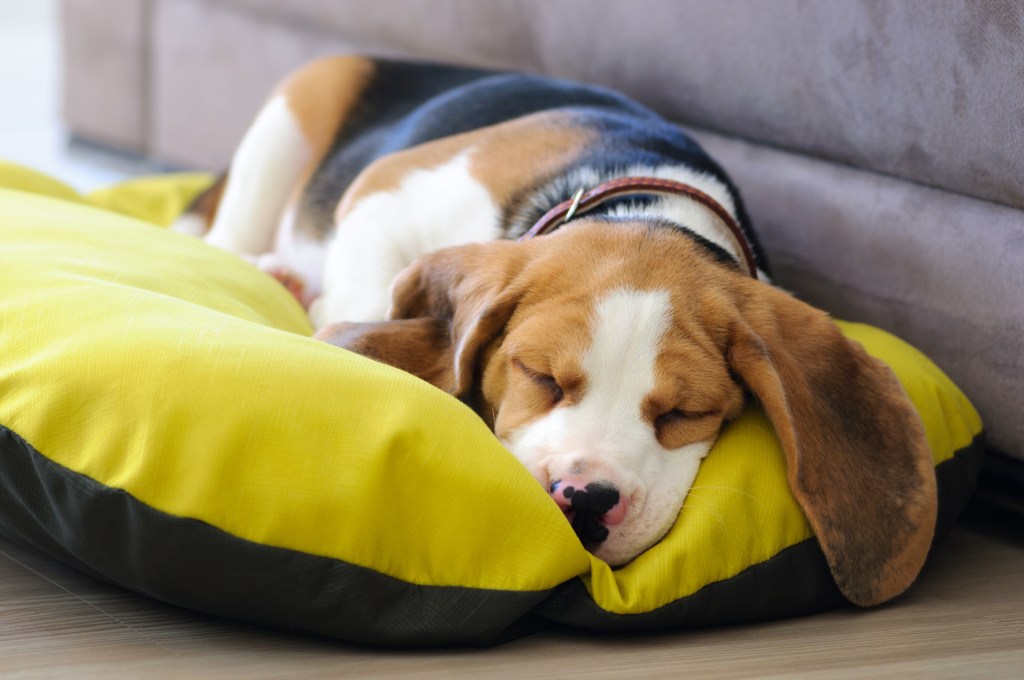
Do 8-week-old puppies sleep a lot?
It depends on your definition of “a lot.” Do you define “a lot” of sleep as 18 to 20 hours daily? If so, then yes, an 8-week-old puppy sleeps a lot. This rest is productive and essential for a tiny growing dog, though. Puppies are growing and developing at a rapid pace, and their minds and bodies need rest so they can keep up with all the changes.
Your best bet is to let your new puppy sleep and follow their lead. When they’re ready for longer wake windows, they’ll likely let you know with tons of kisses and requests to play. Your vet can also address any concerns you have.
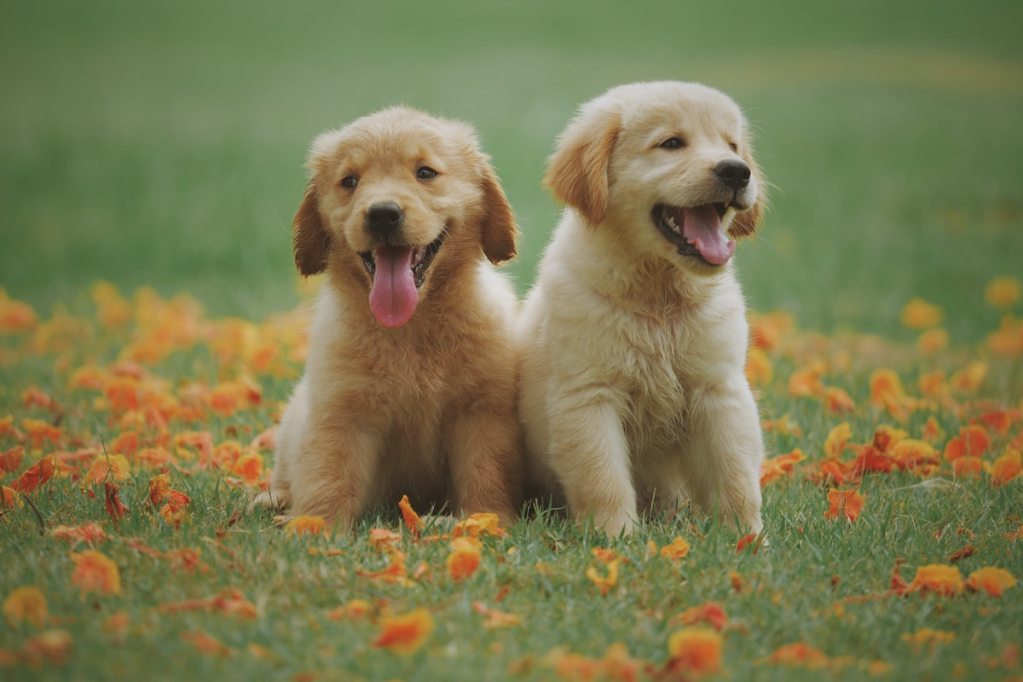
How long can a 10-week puppy hold it?
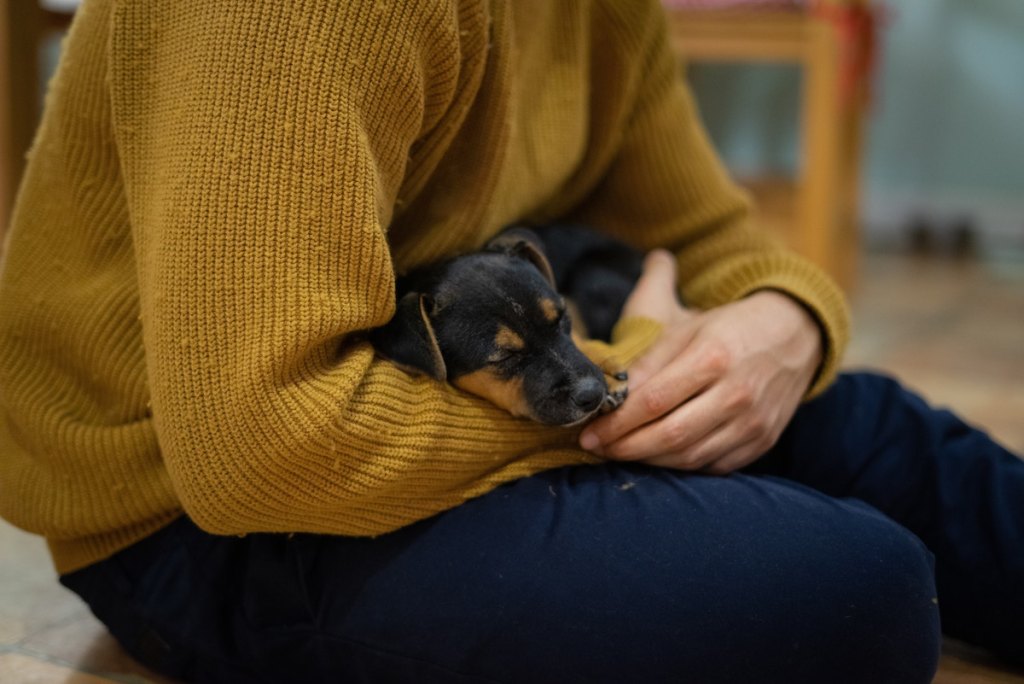
These are the typical sleeping habits of a healthy puppy
Your new puppy is a real ball of energy. He can sometimes seem like a never-ending source of excitement, but then it happens: Your pup gets all tuckered out and can sleep for what seems like hours, even in the middle of the day. What’s a healthy sleep schedule for a growing pup, anyway?
- Your growing baby dog needs sleep. A lot of it. Puppies sleep a lot during the daytime and typically require about 6 to 10 hours in the evening, too. Your pup will likely pass out quite hard after getting a lot of activity in. A walk around the block, some kisses, and play might be all it takes. Then your beastie will lay wherever he is and quickly be in dreamland.
- Daytime napping is perfectly healthy for your new pup. They will know when and how much sleep they need. Thirty minutes to two hours is a typical time span for a healthy pup nap. Baby dogs, like baby humans, will often fall asleep right where they are. Do not disturb or wake up your sleeping puppy — just let him rest.
- When your puppy is very young, he might want to go for a walk in the middle of the night. By 16 weeks or so, it should be easy for your puppy to sleep soundly through the night for about 6 to 10 hours. Sleep is very important for the healthy development of your pup. It might take some getting used to for everyone in your new family, but in time, you will get the bedtime thing down easily.
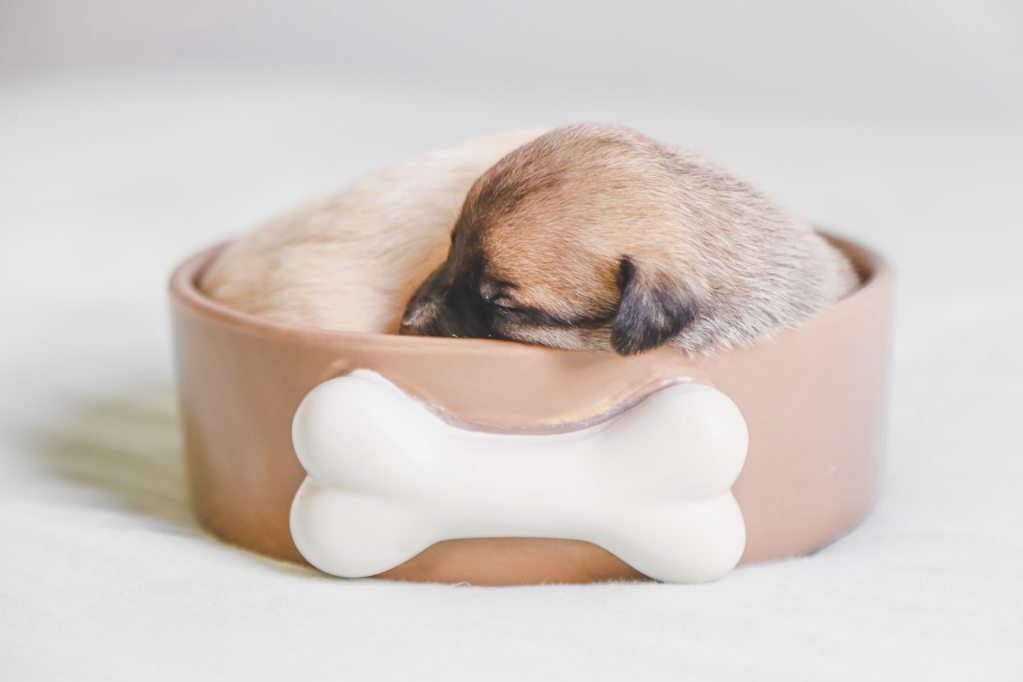
Making the most of naptime will keep your puppy healthy, too
To make sure your dog is as happy and nourished as possible, it is important to try to plan your day around their nap, play, and learning. Here are some naptime tips:
- When your dog is tired, he needs to rest. Don’t try to force your puppy to stay up when he’s clearly ready to conk out.
- After a nap is a great time to practice the things you had been teaching your dog earlier in the day. Much like you, they are refreshed and ready to learn.
- Create a tender and soft bed for your pet. Encourage him to use it. Though, if your dog is sleeping somewhere else, do not wake him up to force him to this place. Pups will take time to learn these things, but honestly, sleep is more important for them than being in a certain location. They know what is comfortable for them and will learn about the special place you made for them as they develop.
- Let family members know not to wake the puppy when he is asleep. Although all that cuteness is hard to resist, think long term. The sleep he receives as a puppy will help him develop into a happy, healthy adult dog.
- Give him a chew toy. Chewing is a calming activity for dogs of all ages, but especially for teething puppies. A quiet toy or bone can help your pup fall asleep.
- Make sure he gets plenty of exercise. This means physical as well as mental stimulation. After the activity, know that your puppy will typically sleep anywhere from 30 minutes to two hours.
- Take your puppy out for a potty break before naptime. Watch him and ensure he poops and pees during this potty break. As long as he’s empty, he’ll enjoy a more restful and comfortable nap.
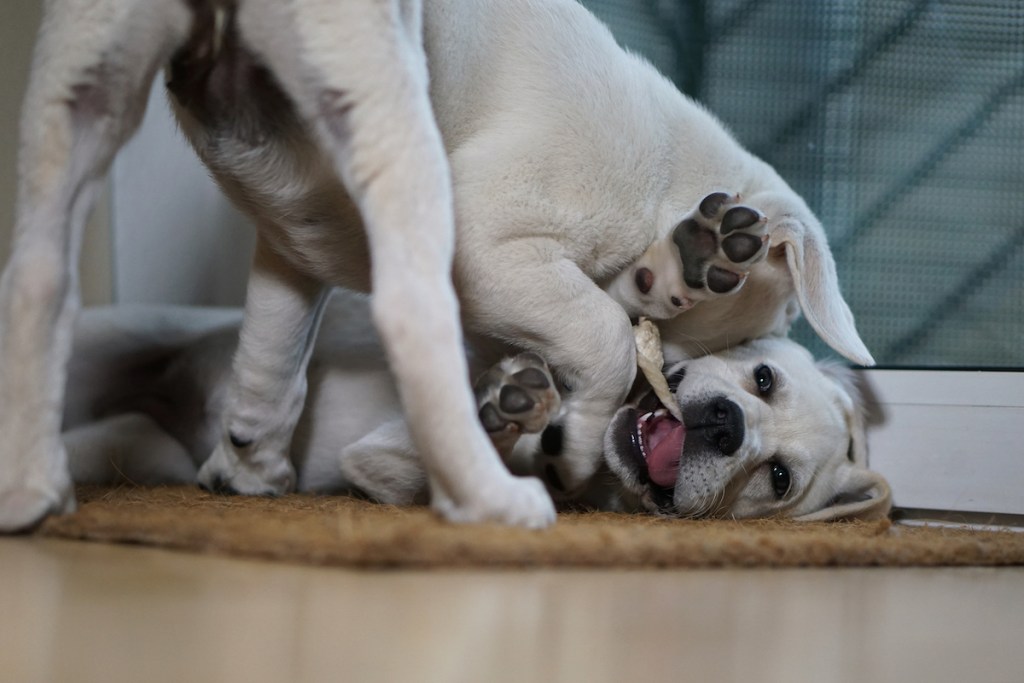
How a sleep schedule can help your puppy develop (and keep you sane)
To help your pet strike the right balance of sleep and awake time, consider sleep training your puppy by creating a schedule that includes plenty of playtime, learning, and naptime during the day.
In the morning
Take him outside for a potty break as soon as he wakes up, then feed him breakfast. After another potty break, let him play for the next few hours before letting him nap.
In the afternoon
When he wakes from his morning nap, give him another potty break before you feed him lunch. Alternate periods of play, potty training, and naptime throughout the afternoon.
In the evening
After dinner, take a short walk and work on leash training or let him play with family members. Refrain from letting him eat or drink a few hours before bedtime. Before you tuck him in, take him out for one last potty break.
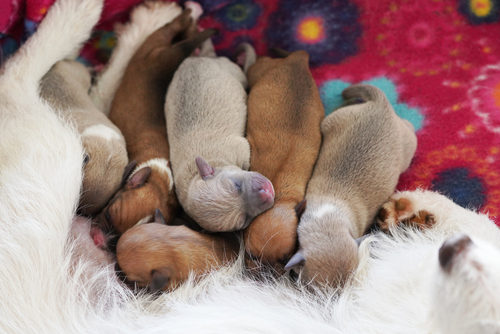
When should I be worried my dog is sleeping too much?
Depending on the breed of dog you have, your puppy might sleep anywhere from 16 to 20 hours out of a 24-hour day. This is completely normal, and there is nothing wrong with your dog if it sleeps this much. Some breeds need more z’s than others so discuss expectations with your breeder or vet if you’re new to dog ownership. In fact, sleep is absolutely essential for your new baby to learn, grow, and develop to the best of its ability.
If your dog is sleeping more than 20 hours a day, you should take it to a veterinarian immediately. It is worth checking to make sure there is nothing wrong. Also, if your pup is excessively groggy or lethargic throughout the time it is awake, this could also be a sign of a complication worth exploring with a medical professional. In general, if you are ever in doubt, call your vet and ask them any questions you might have about your new dog. That’s what they are there for.
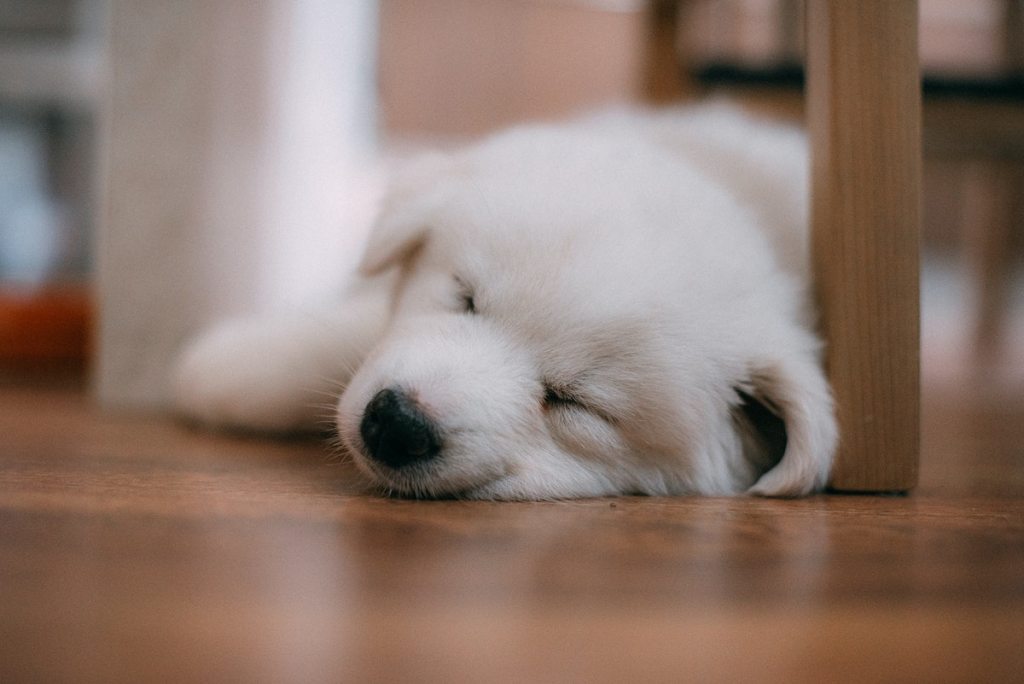
Final thoughts on dogs and sleep habits
At about 16 weeks, most puppies sleep through the night. At that point, they’ll need about 6 to 10 hours of sleep a night to feel their best, depending on the breed. The sleep health of you and your dog is both important. Take care of yourself — it’ll be even easier to be the best you can be for your little bundle of furry joy. Proper sleep hygiene can take humans and animals some training, but with some effort, the training will last a lifetime.

